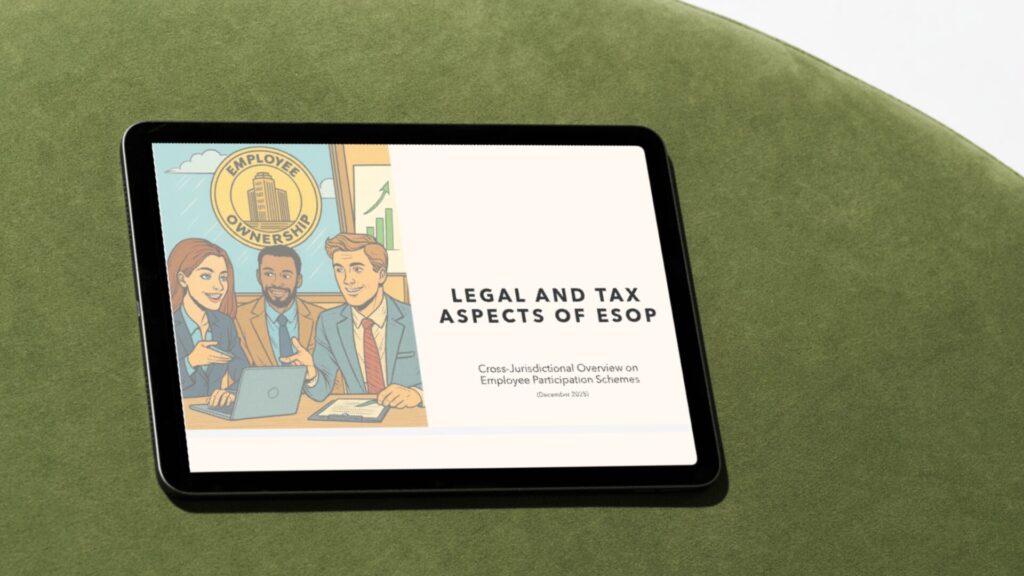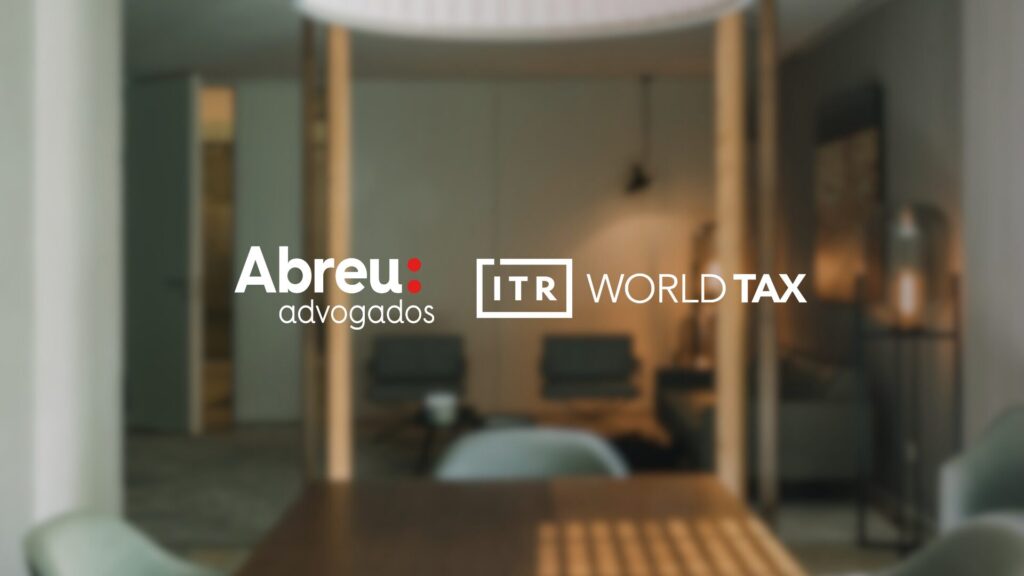Portugal’s new inpratiate regime – “NHR 2.0”
Strategic Opportunities for Highly Qualified Professionals and Employers
Introduction
The Portuguese State Budget Law for 2024 formally closed the well-known Non-Habitual Resident (NHR) regime, which for over a decade had been a flagship instrument of Portugal’s international tax competitiveness[1]. At the same time, the legislature introduced a new framework, officially named the Tax Incentive Regime for Scientific Research and Innovation (Regime Fiscal de Incentivo à Investigação Científica e Inovação, “IFICI”), but already colloquially referred to as “NHR 2.0”[2].
This reform signals a strategic pivot. Whereas the original NHR regime primarily attracted pensioners and passive income earners, the new scheme is explicitly designed to bring in active, highly qualified professionals and entrepreneurs in sectors considered essential for Portugal’s economic future.
The regime only became fully operational following the publication of the relevant implementing regulations in December 2024 and February 2025, which clarified eligibility criteria, qualifying activities, and application procedures[3].
Eligibility Criteria
To qualify for the NHR 2.0 regime, individuals must cumulatively:
- Become tax residents in Portugal;
- Not have been Portuguese tax residents during the preceding five years;
- Never have benefited from the former NHR regime or from the Programa Regressar (former residents’ programme);
- Perform, each year, a qualifying activity as defined by law and secondary regulations.
Eligible Activities
Eligible activities include, but are not limited to, the following:
- Employment or board positions in entities duly certified as start-ups;
- Highly qualified professions within companies that:
- Have submitted qualifying investment applications, either in the year the individual joins or within the previous five years; and
- Are benefiting or have benefited from the Investment Promotion Tax Regime (RFAI);
- Employment or board roles in entities carrying out economic activities recognized by AICEP or IAPMEI as being of strategic importance to the national economy—particularly in relation to attracting productive investment and reducing regional disparities.
According to the notices published by AICEP and IAPMEI,[4] qualified roles include:
- General Directors and Executive Managers;
- Directors of Administrative, Commercial, Production, and Specialized Services;
- Directors in Hospitality, Catering, Retail, and Other Services;
- Specialists in Physical Sciences, Mathematics, Engineering, and Related Fields;
- Medical Doctors;
- University and Higher Education Professors;
- Specialists in Finance and Accounting (excluding classification 2411);
- Information and Communication Technology (ICT) Professionals;
- Directors and Producers in Film, Theatre, Television, and Radio;
- Mid-level Technicians and Professionals in Science and Engineering.
Also, as per the AICEP and IAPMEI notices, to qualify, individuals must possess at least a Level 5 qualification under the European Qualifications Framework (EQF) and the International Standard Classification of Education (ISCED)—corresponding to short-cycle higher education, which includes advanced technical and vocational training.
The following sectors are deemed economically significant and are therefore eligible under the NHR 2.0 regime:
- Extractive Industries
- Manufacturing Industries
- Electricity, Gas, Steam, Hot and Cold Water, and Air Conditioning Supply
- Construction
- Accommodation, Food Services, and Similar Activities
- Information and Communication Technologies
- Financial and Insurance Activities (provided a valid license is held)
- Scientific, Technical, and Consulting Services
- Administrative and Support Services
- Education
- Human Health and Social Work Activities
Application Process
If all eligibility conditions are met, the individual must apply for the regime by 15 January of the year following the one in which they became a tax resident in Portugal.
Applications are submitted via a dedicated electronic form available on the Portuguese Tax Authority’s website.
Tax Benefits
The NHR 2.0 regime offers a dual benefit structure:
- Portuguese-source income. Employment or self-employment income derived from eligible activities is subject to a flat 20% PIT rate, plus social security contributions. This represents a significant reduction compared to the standard progressive PIT rates, which range from 13% to 53%, plus a solidarity surcharge of up to 5%;
- Foreign-source income. A full exemption from PIT applies to most categories of foreign income (including dividends, interest, and capital gains on securities), subject to two exceptions:
- Foreign pension income, which is taxed under the normal progressive PIT rates;
- Income sourced in jurisdictions on Portugal’s tax blacklist, which is subject to a 35% flat rate.
The benefits apply for a non-renewable period of ten consecutive years, provided the taxpayer remains a Portuguese resident and continues to perform an eligible activity.
Initial Experience in Practice
Although the regime has only recently entered into force, early cases already suggest successful outcomes.
Beneficiaries have included:
- Board members and employees of companies certified as start-ups by Startup Portugal;
- C-level executives, board members, and qualified employees of:
- Family offices;
- Technology companies;
- Investment funds, such as real estate funds, venture capital funds, etc (both domestic and EU licensed);
- Companies operating in the hospitality sector, including hotels and tourist apartments.
These examples suggest that the regime is indeed steering towards its intended targets: entrepreneurial talent and high-skilled professionals in sectors with innovation and growth potential.
Policy Assessment
The transition from NHR to NHR 2.0 reflects a deliberate recalibration of Portugal’s policy priorities. The old NHR, though successful in attracting international residents, was increasingly criticised for favouring retirees and passive income earners. The new regime ties benefits to productive economic activity, thereby embedding foreign talent in Portugal’s innovation ecosystem.
The combination of a reduced flat rate for Portuguese-source income and a broad exemption for most foreign-source income helps maintain Portugal’s competitiveness within the global market for mobile talent.
Conclusion
The NHR 2.0 regime represents more than a successor to its predecessor; it is a strategic realignment. Portugal is shifting its fiscal focus from attracting capital inflows of retirees to anchoring human capital in innovation-driven sectors.
Its long-term success will depend on three factors: predictability in application, clarity of administrative guidance, and Portugal’s ability to position the regime internationally.
For now, the new framework positions Portugal as a serious contender in the global competition for highly skilled talent. Yet whether “NHR 2.0” will become a flagship success or a niche incentive will only be revealed in the coming years, as the first full cohorts of applicants complete the ten-year cycle. The story, in other words, is just beginning.
[1] State Budget Law for 2024 (Lei n.º 82/2023, de 29 de dezembro).
[2] Law No. 31/2024, of 28 June; Ordinance No. 352/2024/1, of 23 December; IAPMEI Notice No. 4812/2025/2, of 3 February.
[3] Ordinance No. 352/2024/1; IAPMEI Notice No. 4812/2025/2.
[4] IAPMEI Notice No. 4812/2025/2, dated 3 February, and AICEP Notice No. 5309/2025/2, dated 25 February.










































